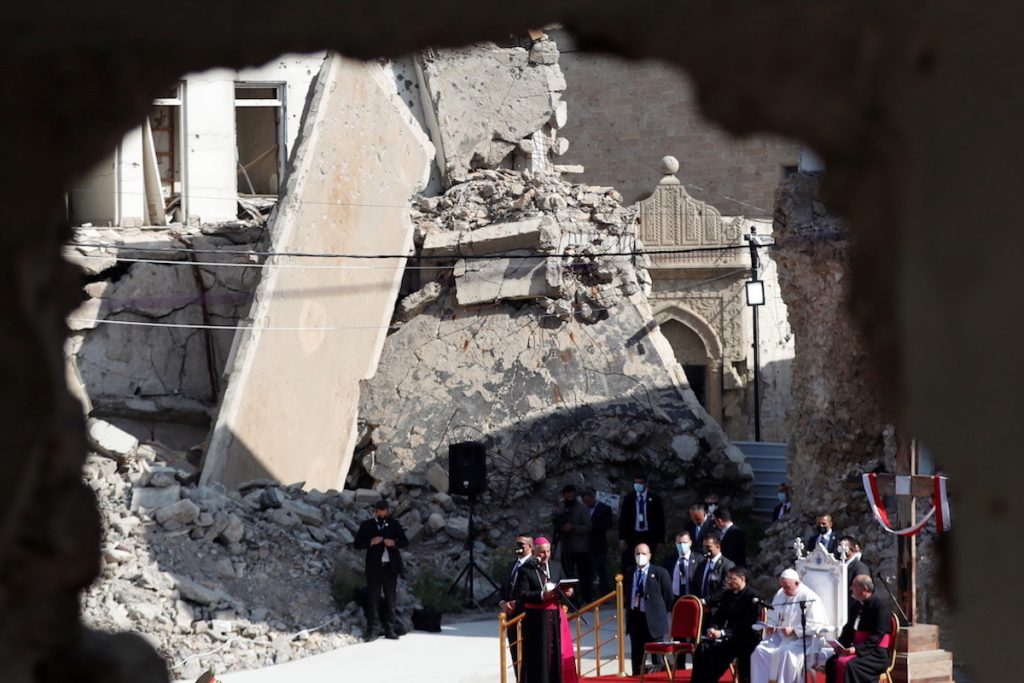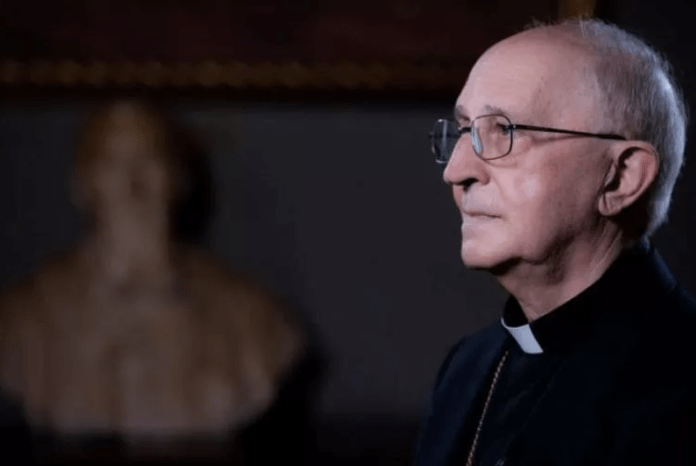On the 20th anniversary of the outbreak of the war in Iraq this week, Cardinal Fernando Filoni, then apostolic nuncio to the country, recalled his time in Baghdad where he was sent as a “messenger of peace.”
“I remember this period as one of the most tough periods of my life,” said the cardinal in an interview with Vatican News.
“This was the moment in which not only myself but also the bishops, the priests, the faithful and the people in Iraq, we had the perception of our incapacity to give a different perspective than that of war,” he added.
Cardinal Filoni was appointed as the Vatican’s ambassador to Iraq and Jordan in January 2001 and was at the apostolic nunciature in the Iraqi capital during the US invasion that began on March 20, 2003.
He recalled that Pope John Paul II spoke often of the conflict and about the possibility of solving it through dialogue.
“I say to all: There is still time to negotiate; there is still room for peace, it is never too late to come to an understanding and to continue discussions,” the pope then said.
He reminded that “the use of force represents the last recourse, after having exhausted every other peaceful solution, in keeping with the well-known principles of the UN Charter.”
But based on the assumption that Saddam Hussein had “weapons of mass destruction,” the US ordered air strikes over Baghdad, marking the beginning of a military operation “to disarm Iraq, to free its people, and to defend the world from grave danger.”
US forces toppled Hussen’s regime in a matter of weeks and the search for evidence of Iraq’s so-called “weapons of mass destruction intensified. The weapons were nowhere to be found.
The US military remained in Iraq for eight years. During that time some 4,600 US soldiers and 270,000 Iraqis, mostly civilians, were killed.
Pope John Paul II’s prophetic words regarding “the extremists that could stem from [the war]” proved dramatically true, and insecurity spiralled, fuelling insurgency.
Historians believe that this helped spawn the Islamic State (ISIS) terror group and created a battleground where civil war could take place.

Twenty years later, no one knows with certainty how many people have been killed and wounded in Iraq since the 2003 US invasion.
What was “really terrible,” said Cardinal Filoni, was not having the opportunity to foster dialogue and promoting peace, and he remembered how they were forced “just to accept – fatally – the war.”
“We tried to live this moment witnessing the faith, and our solidarity with the people,” he said. His presence, he said, was intended as a witness that the Church would never abandon a situation where things were difficult, where war was ongoing.
“We are there for solidarity, to assure peace, to defend rights, to be close to Christians, to Catholics, to dialogue [with the other parties],” said the cardinal. “If this is the real reason for our presence, if there is a war, we cannot leave.”
He said that as Church, “we must show ourselves as a part of the people there. We are inserted in the reality.”
“We defended the right of the Church to be here because it’s part of the life of the Iraqi people,” he said.
He said the Church “suffered a lot because, after the end of the regime of Saddam Hussein, the first to be attacked by [fundamentalist] groups were Christians and Catholics.”
“Churches were destroyed, and there were many martyrs,” said the cardinal.
Cardinal Filoni said Pope Francis’s visit to Iraq from March 5-8, 2021, was much more than a simple visit.
“It was a pilgrimage to Iraq, not for the holy sites of Abraham and many other prophets who lived there, but also a pilgrimage for the many martyrs” both inside and outside the Church, because thousands of Iraqi people, including Muslims, “suffered a lot.”
He said it was a pilgrimage that Pope St John Paul II had wanted to undertake, and it was a sign of hope for the future for Christians. – from a Vatican News report









